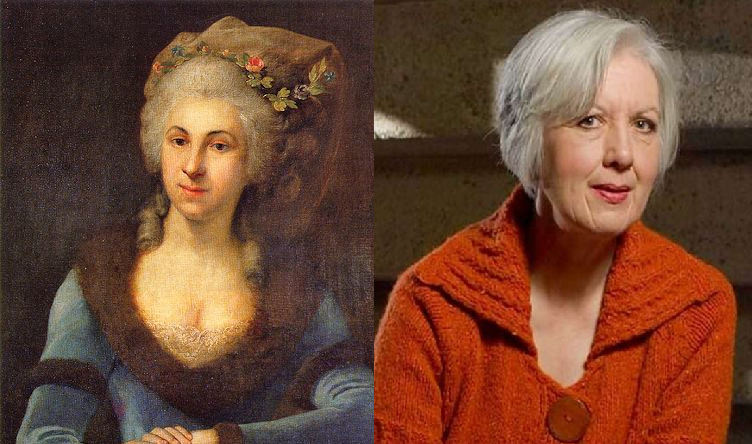
Marianne Martines and Judith Weir
Marianne Martines’ works continue gaining recognition – Boston’s Horizon Ensemble performs her Symphony in C on Sunday, Oct. 6 – the concert is “pay what you can” and will stream, if you are unable to attend in person. More information here. The theme of the concert is FREEDOM, and Martines was fortunate to have the freedom from financial constraints and from social expectations that kept most women in a confined sphere. Learn more about Martines in this recent New York Times article.
The concert also includes two recent works by friends – local composers known to the ensemble and the community. Shaheed by Andrés Ballesteros, a piece inspired by the Arab Spring; and Laleh-zar (Tulip Field) by Sepehr Pirasteh, drawing from the Iranian symbolism of tulips as love and sacrifice. The concert concludes with Johannes Brahms’ Symphony No. 3 which expresses his personal motto “free but happy”. The innovative Horizon Ensemble is a recipient of a WPA Performance Grant.
Meanwhile, in the UK, the English Touring Opera opens a run of performances today, where Marianne Martines shares a double-bill with Judith Weir’s opera “Blond Eckbert,” a haunting tale based on a supernatural short story by the Romantic author Ludwig Tieck. Weir’s one-act opera is paired with a composite work “Do not take my story for a fairytale,” a staging of song cycles and cantatas exploring love, isolation and the wonder of the natural world. Featuring music from the same period of Ludwig Tieck’s story, Der Blonde Eckbert, was written, “Do not take my story for a fairytale” includes Marianne Martines four-movement solo cantata, “La Tempesta,” with a text by the famed author Metastasio, who was also her neighbor, mentor, and eventually her patron. You can listen to the suitably dramatic “La Tempesta” here on Spotify and read the text in English or English and Italian, here. English Touring Opera tours with the Double Bill over the next six weeks.
